★★★
“Down for the count.”
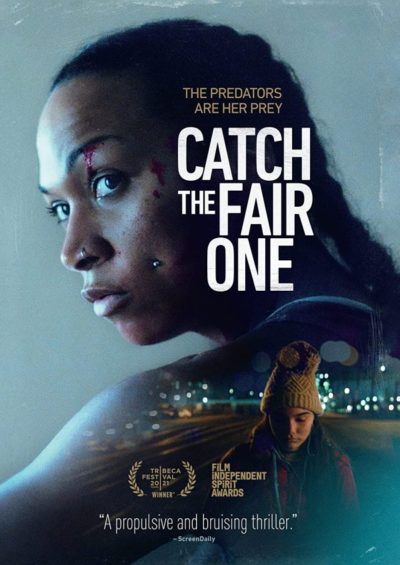 Quite often, in films featuring women who are supposed to be boxers, they simply do not look the part. Safe to say, this is not an issue here. That is apparent from the opening scene, in which Kaylee (Reis) is preparing for a fight. As she warms up with her trainer, the speed and power of her punches is clear, and not cinematic trickery. It’s unsurprising, since Reis is, at time of writing. the current WBA, WBO and IBO light-welterweight world champion. It’s just a shame this movie chooses not to make more use of her undoubted talents in the combat field, and is a tad too earnest to be value as entertainment.
Quite often, in films featuring women who are supposed to be boxers, they simply do not look the part. Safe to say, this is not an issue here. That is apparent from the opening scene, in which Kaylee (Reis) is preparing for a fight. As she warms up with her trainer, the speed and power of her punches is clear, and not cinematic trickery. It’s unsurprising, since Reis is, at time of writing. the current WBA, WBO and IBO light-welterweight world champion. It’s just a shame this movie chooses not to make more use of her undoubted talents in the combat field, and is a tad too earnest to be value as entertainment.
Kaylee falls into a downward spiral after her sister Weeta (Borrero) vanishes, and is barely scraping by, but then receives information that Weeta was abducted by a sex trafficking ring. With the authorities unwilling to do anything – the number of indigenous women who suffer this fate, or are flat-out murdered is startling – it’s up to Kaylee. She infiltrates the ring run by Bobby (Henshall), only to find it’s a lot harder to get out than in, and that he isn’t necessarily the man in charge. If I may trot out a tired boxing cliche, she’s in for the fight of her life, as she seeks the truth about what happened to her sister, and whether Weeta is alive or dead.
Reis is the best thing this has going for it, and the makers know it. There’s a raw intensity which is utterly convincing, as she throws herself into a terrible situation in pursuit of Weeta. Though you do have to wonder why she apparently waited so long before trying to track down her supposedly beloved sibling, leaving the trail close to stone-cold. I mentioned “value as entertainment” above, and that should probably be stressed. This isn’t a Taken-style popcorn audience pleaser. It’s more of a descent into hell, which will leave neither Kaylee nor those with whom she crosses paths unscathed, to put it mildly. The heroine was already badly damaged going in: she sleeps with a razor-blade tucked in her mouth for defense purposes, a note that goes nowhere except as a character trait.
Much the same is true of her boxing talents, which never particularly come to the forefront, leaving me wondering why they made them part of the film. I did have to admire its relentlessly grim tone: there’s hardly a moment of light here, until the very end of the movie. Even then, the carpet of comfort is brutally yanked out from underneath the feet of the viewer with the final shot before the credits roll. I’m not sure if Reis has any future as an actress – or even whether she has an interest in such. However, if this proves to be the beginning and end of her career on-screen, it will still be better than many more accomplished actresses manage.
Dir: Josef Kubota Wladyka
Star: Kali Reis, Daniel Henshall, Kevin Dunn, Mainaku Borrero





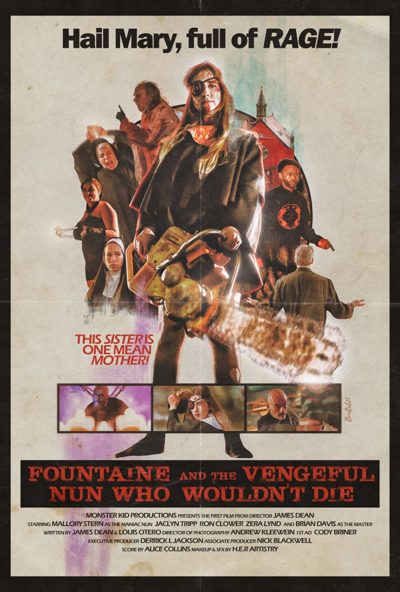 You will probably understand why the title more or less rocketed to the top of my watch-list, especially when accompanied by the poster (right). Naturally, it was almost inevitable that it could not possibly live up to either: the question was mostly, how far short it would fall. The answer is, “a fair bit, yet not irredeemably so,” even if the first half if considerably duller than I wanted. Indeed, it’s also rather confusing, in terms of what’s going on. As well as I can piece things together, Mary (Stern) is a nun who gets sent to an asylum after losing her sister, though it turns out to be less a mental-care facility than you’d expect.
You will probably understand why the title more or less rocketed to the top of my watch-list, especially when accompanied by the poster (right). Naturally, it was almost inevitable that it could not possibly live up to either: the question was mostly, how far short it would fall. The answer is, “a fair bit, yet not irredeemably so,” even if the first half if considerably duller than I wanted. Indeed, it’s also rather confusing, in terms of what’s going on. As well as I can piece things together, Mary (Stern) is a nun who gets sent to an asylum after losing her sister, though it turns out to be less a mental-care facility than you’d expect.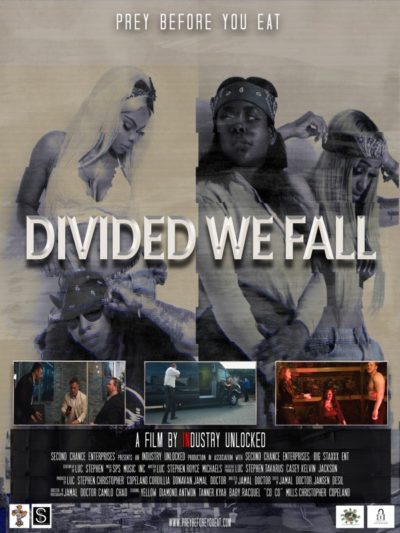 We begin with the usual disclaimer for films of this kind: middle-aged white guys like me are not the target audience. However, I think it’s fair to say that concepts like story-telling and character development are not limited to any particular race, colour or creed, so I still feel equipped to offer an opinion on these aspects. Though, actually, what felt like it worked best here was its strong sense of place. I’ve never been to the projects in Jamaica, New York (though Chris grew up elsewhere in the same borough of Queens). But the film does a good job of showing you that environment; it certainly works better than the (largely token) efforts to convince you some scenes take place in Miami, or even Moscow.
We begin with the usual disclaimer for films of this kind: middle-aged white guys like me are not the target audience. However, I think it’s fair to say that concepts like story-telling and character development are not limited to any particular race, colour or creed, so I still feel equipped to offer an opinion on these aspects. Though, actually, what felt like it worked best here was its strong sense of place. I’ve never been to the projects in Jamaica, New York (though Chris grew up elsewhere in the same borough of Queens). But the film does a good job of showing you that environment; it certainly works better than the (largely token) efforts to convince you some scenes take place in Miami, or even Moscow. Roughly ten minutes into this, it was clear I’d made a terrible mistake. I’ve seen my share of wretched creature features in my time, and this is down near the bottom of the barrel. It does have an interesting, if totally ludicrous idea. Five women are invited to a remote hotel, to take part in a game-show, competing for a prize of £100,000. Among them is struggling single mother Sienna (Wunna) who, unable to find a baby-sitter, takes her two kids with her. As the cover ever so subtly suggests, the game has carnivorous dinosaurs roaming the hotel and grounds, and “winning” simply means not getting eaten. Naturally, Sienna’s two kids also disobey Mum’s instructions not to leave the room.
Roughly ten minutes into this, it was clear I’d made a terrible mistake. I’ve seen my share of wretched creature features in my time, and this is down near the bottom of the barrel. It does have an interesting, if totally ludicrous idea. Five women are invited to a remote hotel, to take part in a game-show, competing for a prize of £100,000. Among them is struggling single mother Sienna (Wunna) who, unable to find a baby-sitter, takes her two kids with her. As the cover ever so subtly suggests, the game has carnivorous dinosaurs roaming the hotel and grounds, and “winning” simply means not getting eaten. Naturally, Sienna’s two kids also disobey Mum’s instructions not to leave the room. I was going to start this with a warning to try and avoid reading other reviews of this before watching it, because it felt as if, without exception, they all included spoilers for a significant plot-point, that wasn’t actually revealed until deep into the movie. Heck, the IMDb synopsis does it too. However, having sat through the entirety of this bland piece of indigenous folk pseudo-horror, all I can say is “Meh.” You do you: it’s probably not as if it’s going to have much impact, because it’s hard to spoil something which already smells past its best before date.
I was going to start this with a warning to try and avoid reading other reviews of this before watching it, because it felt as if, without exception, they all included spoilers for a significant plot-point, that wasn’t actually revealed until deep into the movie. Heck, the IMDb synopsis does it too. However, having sat through the entirety of this bland piece of indigenous folk pseudo-horror, all I can say is “Meh.” You do you: it’s probably not as if it’s going to have much impact, because it’s hard to spoil something which already smells past its best before date.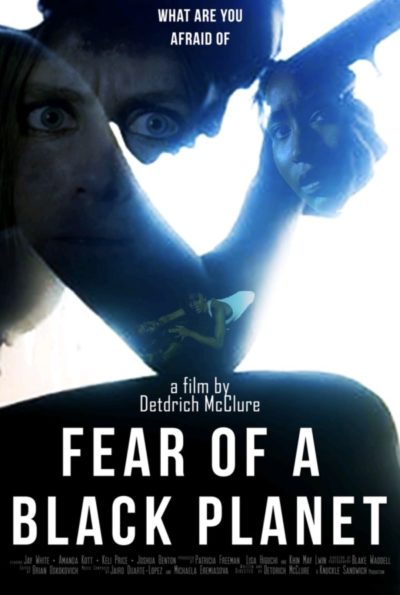 It’s interesting to look at the film’s IMDb page, and contrast the reviews, where there’s nothing less than an 8/10, with the rating, where 73% of votes are a 1/10. One “review” was actually a rant about other reviews which appear to have been removed? Something odd there. There’s no doubt, the film is not so much tackling a contentious topic, as driving head-first into it at 80 mph. Even the title (obviously inspired by the Public Enemy LP of the same name) is an incendiary one, guaranteed to raise the hackles of many – and, to be honest, not without reason, because of the assumptions it makes. It’s a shame, since the film is at least slightly more nuanced than the title makes it seem.
It’s interesting to look at the film’s IMDb page, and contrast the reviews, where there’s nothing less than an 8/10, with the rating, where 73% of votes are a 1/10. One “review” was actually a rant about other reviews which appear to have been removed? Something odd there. There’s no doubt, the film is not so much tackling a contentious topic, as driving head-first into it at 80 mph. Even the title (obviously inspired by the Public Enemy LP of the same name) is an incendiary one, guaranteed to raise the hackles of many – and, to be honest, not without reason, because of the assumptions it makes. It’s a shame, since the film is at least slightly more nuanced than the title makes it seem.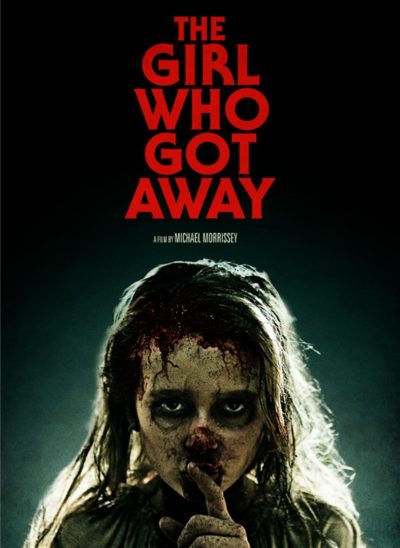 This isn’t the first movie I’ve seen, in which a woman escapes apparent death at the hands of a serial killer, only for them to track her down years later. However, the twist in the narrative here, which perhaps pushed it over the necessary boundary for inclusion on the site, is that the killer is also female. The victim is Christina Bowden (Johnson), who as a young girl was the sole survivor of Elizabeth Caulfield (Tuckerman) and her “child farm”, for want of a better phrase. Bowden has slowly put her life back together and is now a school teacher. She’s also looking to adopt another troubled teen, Lisa Spencer (McCarthy), and pay it forward. Then she gets a visit from local sheriff Jamie Nwosu (Iwuji).
This isn’t the first movie I’ve seen, in which a woman escapes apparent death at the hands of a serial killer, only for them to track her down years later. However, the twist in the narrative here, which perhaps pushed it over the necessary boundary for inclusion on the site, is that the killer is also female. The victim is Christina Bowden (Johnson), who as a young girl was the sole survivor of Elizabeth Caulfield (Tuckerman) and her “child farm”, for want of a better phrase. Bowden has slowly put her life back together and is now a school teacher. She’s also looking to adopt another troubled teen, Lisa Spencer (McCarthy), and pay it forward. Then she gets a visit from local sheriff Jamie Nwosu (Iwuji).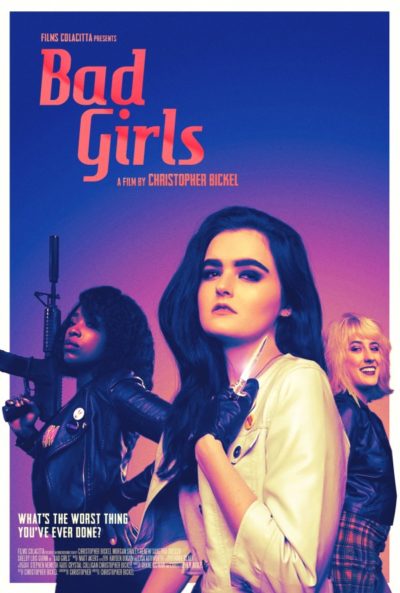 I didn’t realize until this started, it was by the director of the (non-GWG)
I didn’t realize until this started, it was by the director of the (non-GWG) 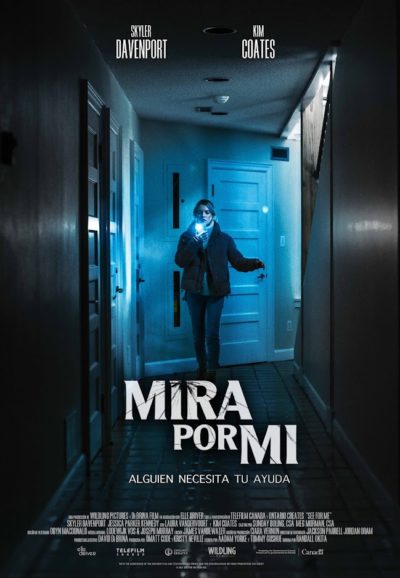 Yeah, as the above might suggest, this owes a rather large debt to
Yeah, as the above might suggest, this owes a rather large debt to  Lou Farnt (Brayben) is stuck in her life, with a dead-end job, no apparent friends to speak of, and still living with her domineering mother (Ball). She seeks escape from one self-help guru after another, spending her money on their books, DVDs and audio-tapes, though with little or no apparent positive results. Then, she meets the unconventional Val Stone (Roe), who lives in a seaside caravan and promises to change Lou’s life forever. After some qualms, she agrees to depart with Lou, who does indeed deliver on her promise. For, as the title suggests, Val is a psychotic if smart killer, who is specifically targetting those same gurus. Either she regards them as a curse on humanity with their vapid schemes, or she simply wants to dispose of the competition.
Lou Farnt (Brayben) is stuck in her life, with a dead-end job, no apparent friends to speak of, and still living with her domineering mother (Ball). She seeks escape from one self-help guru after another, spending her money on their books, DVDs and audio-tapes, though with little or no apparent positive results. Then, she meets the unconventional Val Stone (Roe), who lives in a seaside caravan and promises to change Lou’s life forever. After some qualms, she agrees to depart with Lou, who does indeed deliver on her promise. For, as the title suggests, Val is a psychotic if smart killer, who is specifically targetting those same gurus. Either she regards them as a curse on humanity with their vapid schemes, or she simply wants to dispose of the competition.